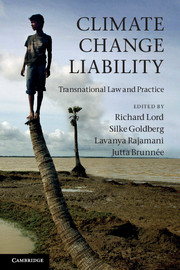Book contents
- Frontmatter
- Contents
- Contributors and Editorial Board members
- Foreword
- Acknowledgements
- Abbreviations
- Part I Legal, scientific and policy aspects
- Part II National laws
- Asia and Pacific
- Africa and the Middle East
- Europe and Eurasia
- 14 European Union Law
- 15 Germany
- 16 Poland
- 17 England
- 18 Russia
- North America
- Central and South America
- Selected resources
- Index
- References
17 - England
from Europe and Eurasia
Published online by Cambridge University Press: 05 June 2012
- Frontmatter
- Contents
- Contributors and Editorial Board members
- Foreword
- Acknowledgements
- Abbreviations
- Part I Legal, scientific and policy aspects
- Part II National laws
- Asia and Pacific
- Africa and the Middle East
- Europe and Eurasia
- 14 European Union Law
- 15 Germany
- 16 Poland
- 17 England
- 18 Russia
- North America
- Central and South America
- Selected resources
- Index
- References
Summary
The English legal system
17.01England is part not only of the United Kingdom of Great Britain and Northern Ireland (‘UK’), but of the European Union, and this dual status is important in considering its law. England is a constitutional monarchy, but has no written constitution. It has a common law legal system. The main sources of the law are: (i) legislation, which may be ‘primary’ in the form of statutes passed by Parliament, secondary legislation, or European legislation in the form of Regulations, which have direct effect as a matter of English law; and (ii) the common law to be found in decided cases and as developed by the courts using a system of precedent. The law of tort, and much administrative law, is common law based.
The governmental stance on climate change
17.02The Department of Energy and Climate Change (‘DECC’) was created in October 2008, to bring together energy policy and climate change mitigation policy. DECC is responsible for all aspects of UK energy policy, and for tackling global climate change on behalf of the UK. The global challenge of climate change is now firmly established on the political agenda of the UK. The rising importance of addressing climate change in the UK was recently expressed in a case before the Planning Inspector, who noted that:
[t]here is no dispute over the national need to address climate change and the importance attached by the Government to the role of exploiting sources of renewable energy in doing so. This is manifest from a range of publications including, for example, the Renewable Energy Strategy 2009, the Energy Act 2008 and the Climate Change Act 2008.
- Type
- Chapter
- Information
- Climate Change LiabilityTransnational Law and Practice, pp. 445 - 488Publisher: Cambridge University PressPrint publication year: 2011
References
- 1
- Cited by

